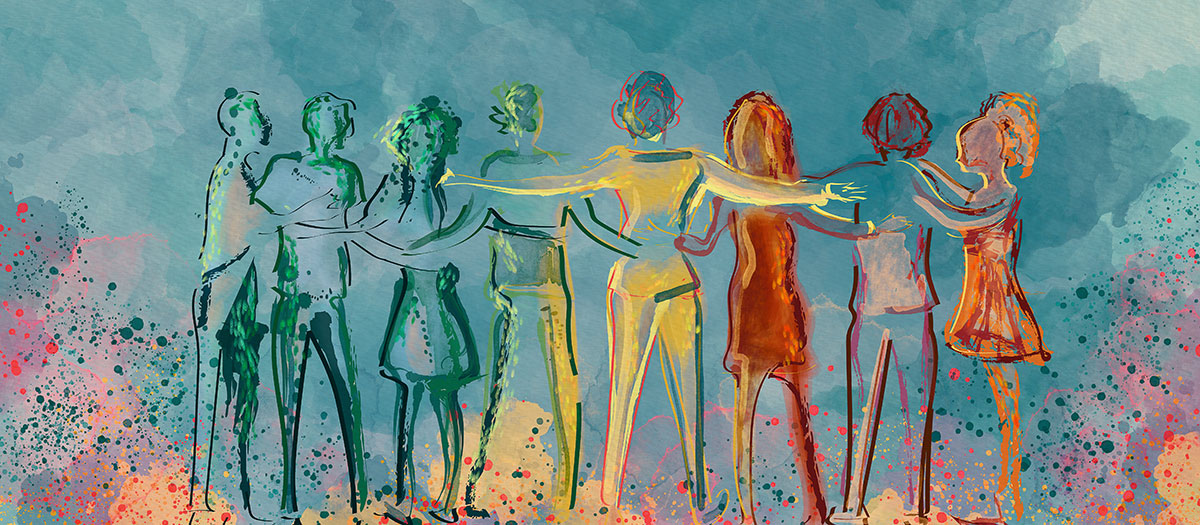Growing up in a small town, I quickly learned that community life isn’t just about neighbors knowing your name—it’s about shared values, shared responsibility, and a shared sense of right and wrong. Faith and justice often intersect in ways that shape how a community functions, particularly in rural areas where relationships are close and reputations matter. As someone who has worked as an attorney, public defender, and judge, I’ve seen firsthand how faith can influence decisions, guide behavior, and even impact the outcomes of legal processes in small communities.
Faith as a Moral Compass
Faith often serves as a moral compass for people living in small towns. It provides guidance, instills discipline, and reminds people of the consequences of their actions beyond just legal consequences. In many rural communities, local churches and faith-based organizations play a significant role in shaping character, promoting accountability, and encouraging service.
In my experience, individuals who are guided by faith tend to approach challenges with a sense of responsibility—not just to themselves, but to their families and their neighbors. This isn’t about enforcing one belief system over another; it’s about recognizing that shared moral values often help maintain social order and personal accountability in tight-knit communities.
Justice Beyond the Courtroom
Justice in small communities isn’t confined to the courthouse. It’s present in everyday interactions—how neighbors treat each other, how businesses resolve disputes, and how young people are taught right from wrong. Faith and community values often reinforce these lessons, making justice a lived experience rather than just a set of laws.
During my time as a public defender and later as a judge, I frequently saw cases where community norms and expectations played a role in resolution. Restorative approaches, for example, often succeed because participants understand the broader social and moral implications of their actions. Faith communities can provide the support networks that make such resolutions possible, encouraging individuals to take accountability and repair harm in meaningful ways.
Supporting Rehabilitation Through Faith
Faith-based programs have long been part of rehabilitation efforts, particularly in rural areas where resources may be limited. Community members, clergy, and faith organizations often step in to provide mentorship, counseling, and support for people struggling with addiction or re-entry after incarceration. These programs reinforce the idea that justice isn’t only about punishment—it’s about transformation.
I’ve witnessed how these programs give people hope, structure, and a sense of purpose. For someone who has made a mistake, being welcomed back into a supportive community can be more transformative than any sentence handed down in court. The principles of forgiveness, accountability, and service, which are central to many faith traditions, align closely with restorative justice approaches that help individuals rebuild their lives.
The Role of Leaders in Faith and Justice
Leaders in small communities—whether they are clergy, attorneys, or judges—have an important responsibility to uphold the intersection of faith and justice. We can’t impose beliefs, but we can model integrity, fairness, and compassion. We can encourage programs that help people grow, learn from their mistakes, and contribute positively to the community.
During my career, I’ve seen how a judge who understands the values of the community can craft resolutions that reflect both legal standards and the community’s moral framework. It’s a delicate balance, but when approached thoughtfully, it strengthens trust in the justice system and fosters a culture of accountability and care.
Faith as a Bridge in Difficult Cases
Small-town cases are often personal. Everyone knows everyone, and the consequences of legal disputes extend beyond the courtroom. Faith can serve as a bridge in these situations, offering common ground for understanding, mediation, and reconciliation.
For example, in cases involving family disputes or minor offenses, faith leaders often facilitate conversations that help parties see each other’s perspectives and work toward resolution. This doesn’t replace the law—it complements it. By combining the structure of legal accountability with the values of compassion and reconciliation, small communities can handle disputes in ways that leave everyone feeling heard and respected.
Building Strong Communities
Ultimately, the intersection of faith and justice strengthens communities. When faith informs moral behavior and justice enforces fairness, communities thrive. Young people learn that right and wrong matter, adults learn the importance of accountability, and neighbors learn the value of support and guidance.
It’s not about making faith a legal requirement—it’s about recognizing that shared values, community support, and moral guidance can help prevent problems before they enter the courtroom. Communities that integrate these principles often experience fewer repeat offenses, stronger family bonds, and a higher degree of trust in local institutions.
Conclusion
Faith and justice intersect in powerful ways in small communities. They work together to uphold moral standards, guide behavior, and provide support when people make mistakes. As someone who has spent a career in law, I’ve seen the difference this intersection can make. Whether through faith-based mentorship, community programs, or simply modeling integrity and compassion, small towns have an opportunity to lead the way in combining moral guidance with legal accountability.
By valuing both faith and justice, rural communities can create systems that not only enforce the law but also build character, strengthen relationships, and foster a sense of shared responsibility. In the end, justice is not just about rules—it’s about helping people live better lives within a community that cares.
